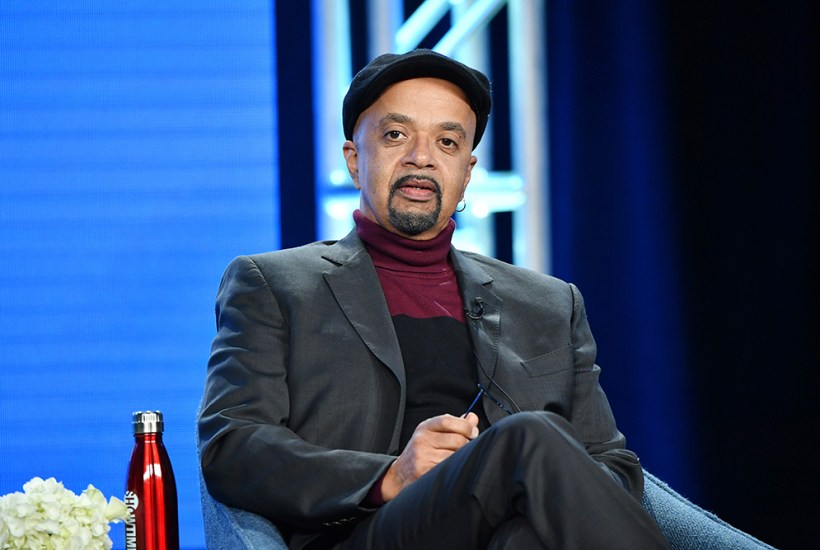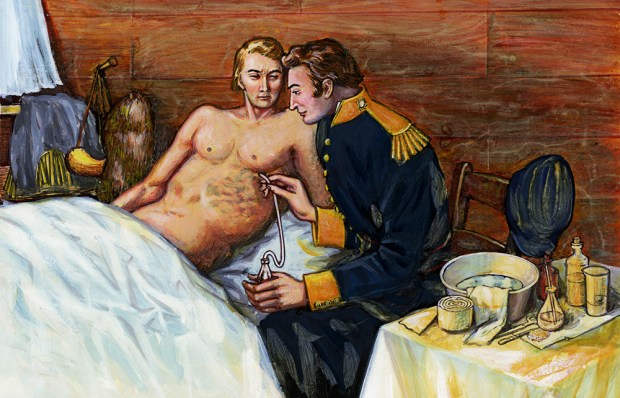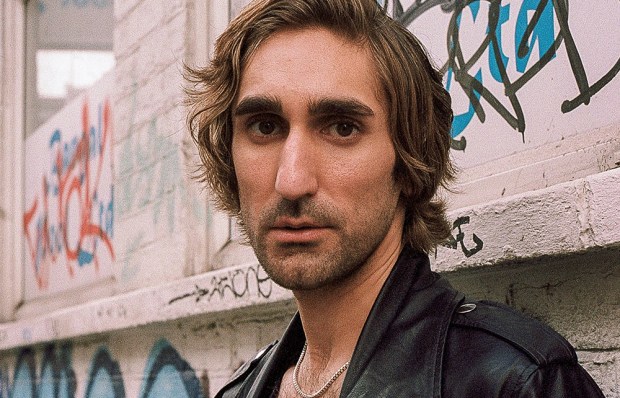If chicken soup is balm for the soul, then James McBride’s eighth book, set in 1930s Chicken Hill, a neighbourhood in a small town in Pennsylvania that is home to Jewish, black and other immigrant people, is its literary equivalent. There is something nourishing about The Heaven & Earth Grocery Store, a warm story about the power of community in the face of prejudice that both salutes the American dream while exposing it as a sham.
Like much of McBride’s previous work, which includes four other novels, a biography of James Brown and his 1996 memoir, A Black Man’s Tribute to His White Mother, about his Jewish mother, Ruth, The Heaven & Earth Grocery Store tackles race and religion via the prism of McBride’s own family’s history. His Jewish grandmother, whom he never met, provides the inspiration for Chona, an American-born Jew who runs the eponymous store. ‘The Negroes of Chicken Hill loved Chona. They saw her not as a neighbour but an artery to freedom,’ McBride writes, describing how Chona views the black residents ‘not as Negroes but as neighbours with infinitely interesting lives’.
We meet her through the eyes of the man she will marry: Moshe Ludlow, a Romanian Jew who owns the local theatre and dance hall. Moshe is making a hash of organising a concert starring Mickey Katz, a klezmer musician who is one of a number of real- life legends who anchor McBride’s fiction in reality. Moshe takes Hebrew lessons from Chona’s father, a rabbi: falling for Chona is an unexpected bonus to his rush of religious fervour.
Although the story is set in the 1930s, we start it in June 1972, when construction workers find a skeleton at the bottom of an old well. The plot, however, is less whodunnit than who-was-it-done-to-and-why: there is glorious retribution in the eventual revelation of the victim’s identity. McBride uses an omniscient voice to swoop in and out of his multifarious characters, which means we see Chicken Hill itself from different perspectives. At one point ‘the tattered neighbourhood… is like a drunk male cousin hovering over little Mary at Christmas, who just turned 18 and suddenly evolved from a gap-toothed tomboy into a flamethrower’. The narrative unfurls around Dodo, a deaf black orphan who state officials want to lock away in an asylum. Chona and Moshe hide him as a favour to their black friends and employees, Nate Timblin and his wife Addie. What happens is heartbreaking, yet McBride finds light amid the darkness. Dodie gets hurt, ‘but his body was only 12. It wanted to live. It wanted to heal’.
McBride has been hailed as the decade’s Great American Novelist. At the very least, this is a Great American Novel, one that celebrates the people who made America even as it foreshadows ‘a future of American nothing… where the richness of all they had brought to the great land of promise would one day be zapped into nothing’. McBride’s genius lies in how he crafts that richness into this moving tale.
Got something to add? Join the discussion and comment below.
Get 10 issues for just $10
Subscribe to The Spectator Australia today for the next 10 magazine issues, plus full online access, for just $10.
You might disagree with half of it, but you’ll enjoy reading all of it. Try your first month for free, then just $2 a week for the remainder of your first year.














Comments
Don't miss out
Join the conversation with other Spectator Australia readers. Subscribe to leave a comment.
SUBSCRIBEAlready a subscriber? Log in